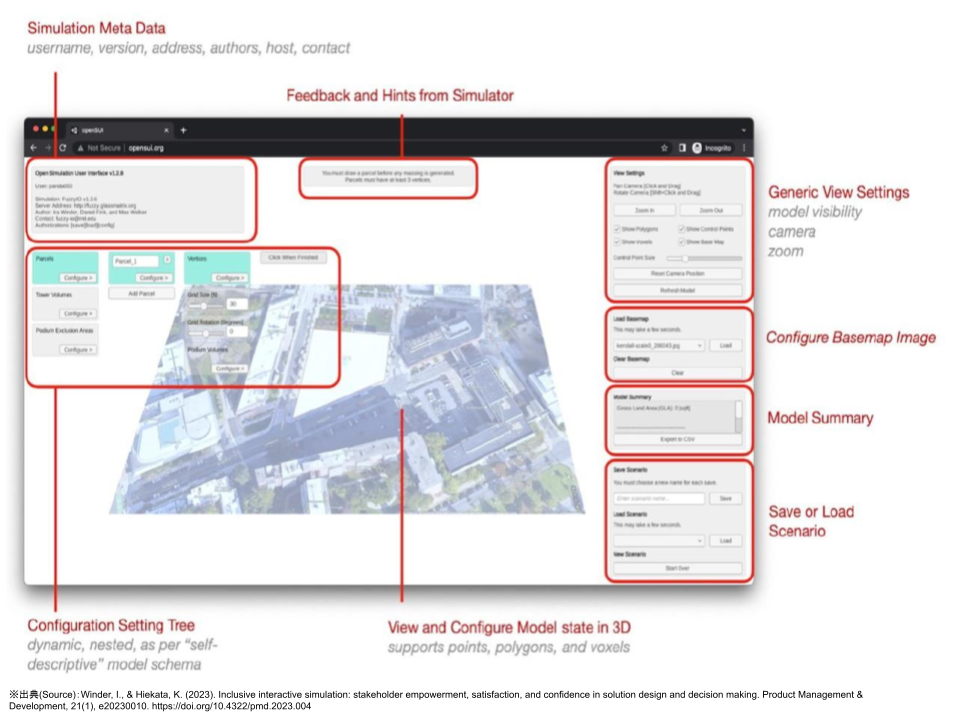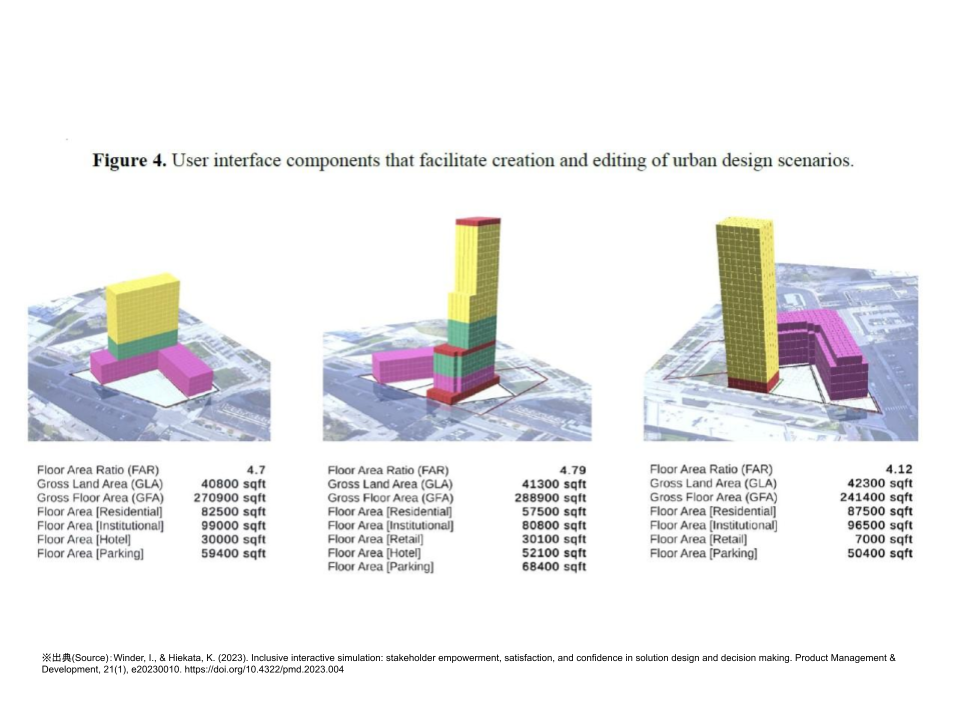
Research Key word: #Complex Systems Design #Simulation #Systems Thinking 1. Overview of the research This research examined the effectiveness of digital tools that enable non-experts, such as the general public, to actively participate in design processes like urban development. For example, it aims to make it easier for community members to collaborate and share their ideas when deciding on school renovations or park designs, using digital tools. 2. The problem addressed: In traditional design processes, it was difficult for the general public to have their opinions reflected because experts used advanced digital tools. To tackle this issue of technological disparity that hinders genuine participation, we developed tools that are easy for anyone to use and evaluated their effectiveness. 3. Research motivation and background: To achieve true participatory design, we believed it was important not just to listen to opinions but to empower the general public with decision-making authority. Existing digital tools are often designed for experts, making it challenging for ordinary people to influence the design process. Therefore, this research aimed to develop tools that allow the public to incorporate their ideas. 4. Results obtained: The results of the experiment showed that most participants chose to edit existing design proposals by experts or create entirely new designs themselves, rather than simply using the pre-made designs. They also felt satisfied and confident in their own designs, suggesting that ordinary people can actively participate in the design process using digital tools. 5. Relationship with value exchange (analysis/creation) and the potential impact of that research on society: This research promotes the exchange of ideas and values between experts and the general public through digital tools. By creating designs that better reflect public opinions, projects like urban development will likely better meet the needs of local residents. This tool has the potential to contribute to the realization of a more equitable and democratic society.
研究キーワード:#複雑なシステムデザイン #シミュレーション #システム思考 1. 研究の概要 この研究は、専門家ではない一般の人々が、都市開発などの設計プロセスに積極的に参加できるようにするデジタルツールの効果を検証しました。例えば、学校の改築や公園の設計を、地域住民が意見を出し合って決めるような場面を、デジタルツールを使ってより簡単に行えるようにすることを目指しています。 2. 取り組んだ問題 従来の設計プロセスでは、専門家が高度なデジタルツールを使用するため、一般の人が意見を反映させることが難しくなっていました。この技術的な格差が、真の参加を妨げているという問題に取り組むため、誰でも簡単に使えるツールを開発し、その効果を検証しました。 3. 研究のモチベーションと背景 真の参加型デザインを実現するためには、単に意見を聞くだけではなく、一般の人々が意思決定権を持つことが重要だと考えました。既存のデジタルツールは、専門家向けに作られていることが多く、一般の人々がデザインプロセスに影響を与えることが難しいという課題がありました。そこで、この研究では、一般の人々が自分のアイデアを反映できるツールを開発することを目指しました。 4. 得られた結果 実験の結果、ほとんどの参加者が、専門家が事前に作成したデザイン案をそのまま使うのではなく、自分でデザインを編集したり、完全に新しいデザインを作成することを選びました。また、自分のデザインに満足し、自信を持って意思決定をすることがわかりました。これは、一般の人々がデジタルツールを使って、積極的にデザインプロセスに参加できる可能性を示唆しています。 5. 価値交換(分析/生成)との関わりと、研究が社会に与えうるインパクト この研究は、デジタルツールを用いて、専門家と一般の人々の間で、アイデアや価値観を交換することを促進します。一般の人々の意見がより反映されたデザインが実現することにより、都市開発などのプロジェクトが、より地域住民のニーズに合ったものになるでしょう。このツールは、より公平で民主的な社会の実現に貢献する可能性があります。
